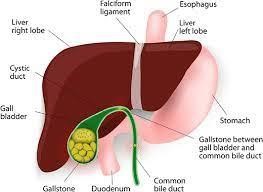A nurse is assisting with the care of a client.
Nurses' Notes
1000
Client states, "I am tired of undergoing treatment because it doesn't seem to be working." Client states, "I hope I am just constipated." Appendectomy scar on right lower quadrant. Abdomen is soft, tender in right lower quadrant, bowel sounds present in all four quadrants.
1200
Surgeon has notified the client that surgical removal of the mass is advisable due to the client's history of metastasis and ongoing treatment failure. The client and their partner want to discuss end-of-life care. Client states, "I am unsure what it means to have a living will or a do-notresuscitate order." The client's partner states, " don't understand what power of attorney means. Both client and partner indicate that they might wish to decline further treatment as well as further fesaving measures should they become necessary. The partner states "How can we be sure that our decision about care will be honored?"
Select the 4 responsibilities the nurse has in relation to the client's advance directives.
Communicate advance directives status via the medical record and shift report.
Document that the provider discussed do-not-resuscitate status with the client
Provide the client with written information about advance directives
Instruct the client that an advance directive is a legal document and must be honored by care providers
Inform the client that an advance directive discontinues further care.
Facilitate a power of attorney for health care document.
Correct Answer : A,B,C,F
The nurse is responsible for educating the client and their partner about advance directives and facilitating their decision-making process. Advance directives are legal documents that allow the client to express their preferences for medical care and treatments at the end of life.
They also enable the client to appoint a health care proxy, who is a person who can make health care decisions for the client if they are unable to do so themselves.
The nurse should provide the client with written information about advance directives, document that the provider discussed do-notresuscitate status with the client, and communicate advance directives status via the medical record and shift report.
The nurse should not instruct the client that an advance directive is a legal document and must be honored by care providers, as this may imply coercion or limit the client's right to change their mind.
The nurse should also not inform the client that an advance directive discontinues further care, as this is inaccurate and may discourage the client from completing one.
The nurse should facilitate a power of attorney for health care document only if the client wishes to designate a health care proxy.
Nursing Test Bank
Naxlex Comprehensive Predictor Exams
Related Questions
Correct Answer is B
Explanation
Answer: B. Client isolates themselves from their family and friends
Rationale: A crisis is a situation that overwhelms a person's usual coping mechanisms and causes psychological distress. A client who isolates themselves from their family and friends is showing a sign of impaired social functioning, which indicates a crisis. The other options are not specific to a crisis and could be manifestations of anxiety or depression.
Correct Answer is D
Explanation
Choice A reason:
This is a mild analgesic and antipyretic. It may be inadequate for moderate pain such as that from cholelithiasis (gallstones).
Choice B reason:
Omeprazole Omeprazole should not administer because it is a proton pump inhibitor (PPI) used to reduce stomach acid production and treat conditions such as gastroesophageal reflux disease (GERD) and peptic ulcers. It is not indicated for the treatment of pain and discomfort associated with cholelithiasis.
Choice C reason
Should not be administered
Metoclopramide Metoclopramide should not be administered because it is a medication used to treat gastrointestinal issues such as nausea, vomiting, and gastroparesis. It is not indicated for the treatment of pain associated with cholelithiasis.
Choice D reason:
Ketorolac: This is a nonsteroidal anti-inflammatory drug (NSAID) appropriate for moderate to severe pain, including biliary colic due to cholelithiasis. It is often used PRN for acute pain relief.

Whether you are a student looking to ace your exams or a practicing nurse seeking to enhance your expertise , our nursing education contents will empower you with the confidence and competence to make a difference in the lives of patients and become a respected leader in the healthcare field.
Visit Naxlex, invest in your future and unlock endless possibilities with our unparalleled nursing education contents today
Report Wrong Answer on the Current Question
Do you disagree with the answer? If yes, what is your expected answer? Explain.
Kindly be descriptive with the issue you are facing.
